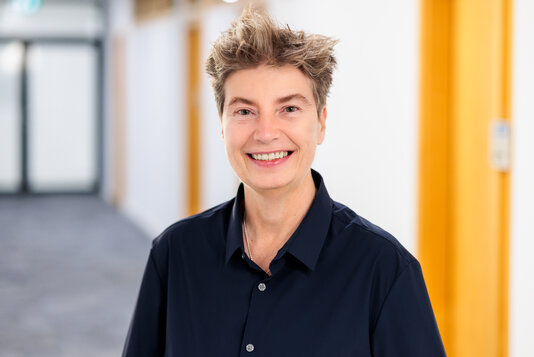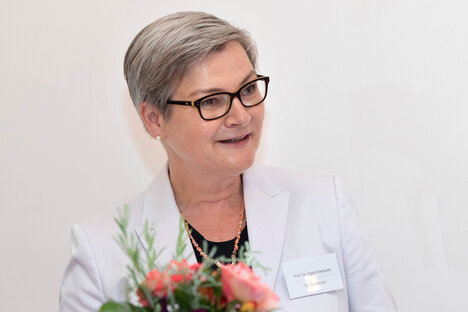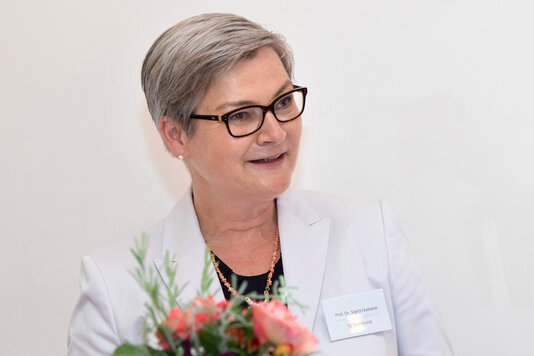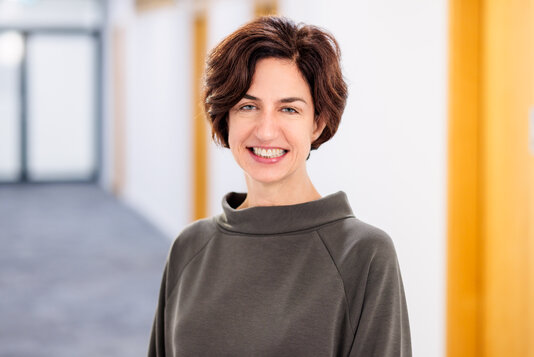
This international conference sheds light on literary and cultural representations of queer intimacies and inclinations in German-language literature and culture. How do we theorise the complex relationships between desire, eros, power, and representation in Männerfreundschaften and Frauenfreundschaften? By looking to periods preceding the mid-19th-century solidification of terms purporting to catalogue, define and contain sexual difference, the conference aims to tease out affective, ethical, and aesthetic potentialities that are curtailed through the labelling that has characterised Western culture since the mid-19th century.

This international conference explores slippages and boundaries between different concepts of intimacy in the context of gendered identities in the literary sphere. What similarities, differences, boundaries, and slippages come into focus when we look at male-male and female-female bondings side by side? Are there specific sites that allow us to differentiate social, erotic, and sexual boundaries from a gendered perspective? How do we theorise the complex relationships between desire, eros, power, and representation in Männerfreundschaften and Frauenfreundschaften?
In light of current movements both to label all manner of difference and to resist its categorisation, scholars from Austria, Canada, Germany and the USA will examine literary and cultural representations of same-sex intimacies and inclinations that defy clear definition. By looking to periods preceding the mid-19th century solidification of terms purporting to catalogue, define and contain sexual difference, the conference aims to tease out affective, ethical, and aesthetic potentialities that are curtailed through the labelling that has characterised Western culture since the mid-19th century.
The figure of thought of inclination is utilised in political theory as a critique of rectitude and uprightness (Cavarero 2016). The conference draws on this figure to interrogate all manner of queer relationships, their reception, and aesthetic representations as variations on the concept of Neigung.
The organisers kindly thank the University Alliance Ruhr, the Goethe Society of North America, and the Institute for Diversity Studies at TU Dortmund University for jointly sponsoring the event.
 ©
Theodor Hildebrandt (1804-1874), self-portrait with artist friend, ca. 1820–1825, oil on canvas, 53,8 × 36 cm, Kunstpalast Düsseldorf, © photo: Kunstpalast - LVR-ZMB - Joshua Esters - ARTOTHEK
©
Theodor Hildebrandt (1804-1874), self-portrait with artist friend, ca. 1820–1825, oil on canvas, 53,8 × 36 cm, Kunstpalast Düsseldorf, © photo: Kunstpalast - LVR-ZMB - Joshua Esters - ARTOTHEK
Die Vorträge dieser internationalen Konferenz ergründen Zwischenräume und Begriffsunschärfen zwischen den Konzepten Homosozialität, Homoerotik und Homosexualität im literarischen Bereich unter interdisziplinären Gesichtspunkten. Aus kulturwissenschaftlicher Perspektive werden Neigung und Zuneigung als Zeichen eines alternativen Diskurses erprobt und auf die Indikation von Sichtbarkeiten und Kategorisierungen überprüft. Die Veranstaltung ist zentraler Teil eines internationalen Tandem-Projekts am College for Social Sciences and Humanities.
Die Konferenz wird organisiert von Prof. Imke Meyer und Prof. Heidi Schlipphacke von der University of Illinois Chicago (USA), die derzeit Senior Fellows am College sind, in Kooperation mit ihrer Tandem-Partnerin Prof. Sigrid Nieberle vom Institut für Diversitätsstudien an der TU Dortmund. Die Veranstaltung wird mitfinanziert von der Goethe Society of North America.
Opening, welcome & introduction | Begrüßung & Einführung
Maximiliane Wilkesmann, College for Social Sciences and Humanities &
Sigrid Nieberle, Institute for Diversity Studies, TU Dortmund University
Inclinations and Illness: Droste-Hülshoff’s Queer Vibrational Bodies
Alice Kuzniar, University of Waterloo, Canada
Moderator: Heidi Schlipphacke, University of Illinois Chicago & College UA Ruhr
Christoph Heins Verwirrnis (2018)
Andreas Kraß, Humboldt-Universität zu Berlin
Moderator: Imke Meyer, University of Illinois Chicago & College UA Ruhr
Coffee break | Kaffeepause
Wolfgang Bunzel liest aus Bettine von Arnims Aphorismen
Wolfgang Bunzel, Freies Deutsches Hochstift, Frankfurt am Main
Moderator: Sigrid Nieberle, TU Dortmund University
Conference Dinner
Moderator: Linda Leskau, TU Dortmund University
Amitié – inclination – amour: Geschlechterfreundschaften der höfischen Gesellschaft Frankreichs (1650-1680)
Hendrik Schlieper, Universität Paderborn
Kunst, Begehren, Identität: J. J. Winckelmann und die Homosexualität vor der Homosexualität
Susanne Hochreiter, Universität Wien
Coffee break | Kaffeepause
Moderator: Iulia-Karin Patrut, Europa-Universität Flensburg
Goethes Werther: Die Neuerfindung der Maskulinität aus dem Geiste Spinozas
Horst Lange, University of Central Arkansas
„… obwohl es heüte verboten ist, muß ich Dir schreiben.“
Die Zeiten der Freundschaft in den Briefen Johannes von Müllers
Helmut Puff, University of Michigan
Lunch break | Imbiss
Moderators: Matthias Bauer, Europa-Universität Flensburg;
Lara-Carina Schlömer, TU Dortmund University
The Albums of Adele Schopenhauer as Queer Erotic Spaces
Catriona MacLeod, University of Chicago
Imaginierte Freundschaft. Bettina von Arnims Günderode-Buch – neu gelesen
Wolfgang Bunzel, Freies Deutsches Hochstift, Frankfurt am Main
Ties That Bind: Homosociality in Adalbert Stifter’s Bergmilch
Imke Meyer, University of Illinois Chicago & College for Social Sciences and Humanities
Break | Pause
Finger food | Imbiss
„Frauen bilden eine Nation für sich.“
Angela Steidele aus Geschichte einer Liebe über Adele Schopenhauer und Sybille Mertens-Schaaffhausen
Angela Steidele, independent author and literary scholar, Cologne
Moderator: Sigrid Nieberle, TU Dortmund University
Moderator: Nadjib Sadikou, Europa-Universität Flensburg
“Without you, what happiness could I enjoy?”
Female Homosociality and Its Erasure in the Epistolary Novel – Richardson, Rousseau, La Roche, Goethe
Heidi Schlipphacke, University of Illinois Chicago & College for Social Sciences and Humanities
„Ach neige, Du Schmerzenreiche“: Die Sprache der Neigung und ihre Vertonungen
Sigrid Nieberle, TU Dortmund University
Coffee break | Kaffeepause
Moderator: Patrick Cook-White, University of Illinois Chicago
Harems, Cloisters, and Polygamist Sects: Women-Only Spaces and the Language of Sexuality
Sophie Salvo, University of Chicago
Frauenfeindschaften: Über Elfriede Jelineks Rivalinnen
Jonas Rosenbrueck, Amherst College
Lunch break | Imbiss
Moderator: Maryann Piel, College of Charleston
Fast Friends: Rainer Maria Fassbinder’s Faustrecht der Freiheit (1975) and Ulrike Ottinger’s Bildnis einer Trinkerin (1979)
Vance Byrd, University of Pennsylvania
Mädchenfreundschaften: Girls Coming of Age in Ute Wieland’s Tigermilch (2017)
Javier Samper-Vendrell, University of Pennsylvania
Closing | Ende der Tagung und Verabschiedung
The programme for the Emerging Scholars Workshop 'GENDER ∩ DIVERSITY ∩ QUEER STUDIES' is available here: https://www.college-uaruhr.de/news-events/events/event-detail/emerging-scholars-workshop-gender-diversity-queer-studies.

Prof. Imke Meyer
University of Illinois Chicago (USA) | German Studies
Imke Meyer is Professor of Germanic Studies at the University of Illinois, Chicago. Her research is focused on 19th-21st century German-language literature, film and thought. She has particular expertise in 19th-century realism, Viennese Modernism, Kafka, and post-WWII literature and film. Her research frequently engages narrative theory, gender and queer theory, critical theory, and visual culture.
Imke Meyer has published two monographs: „Jenseits der Spiegel kein Land: Ich-Fiktionen in Texten von Franz Kafka und Ingeborg Bachmann“ (Würzburg: Königshausen & Neumann, 2001) and „Männlichkeit und Melodram: Arthur Schnitzlers erzählende Schriften“ (Würzburg: Königshausen & Neumann, 2010) as well as numerous articles on a diverse range of authors and filmmakers, including Ludwig Tieck, Franz Grillparzer, Hugo von Hofmannsthal, Elfriede Jelinek, Quentin Tarantino, Michael Haneke, Barbara Albert, and Arthur Schnitzler.
Imke Meyer is the recipient of a DAAD grant for research in contemporary literature. She has held a visiting professorship at the University of Pennsylvania and was the Helen Herrmann Chair at Bryn Mawr College before moving to the University of Illinois, Chicago. She has served as president both for the Austrian Studies Association and for the Pacific Modern and Ancient Literature Association. She is the founding and current editor of the book series “New Directions in German Studies”, published by Bloomsbury Press.
Website

Prof. Sigrid Nieberle
TU Dortmund University | Modern and Contemporary German Literature, Gender and Diversity
E-mail: sigrid.nieberle@tu-dortmund.de

Prof. Sigrid Nieberle
TU Dortmund University | Modern and Contemporary German Literature, Gender and Diversity
E-mail: sigrid.nieberle@tu-dortmund.de
Sigrid Nieberle is Professor of Modern and Contemporary German Literature with a focus on gender and diversity at TU Dortmund University. She completed her doctorate at LMU München with an interdisciplinary thesis on “FrauenMusikLiteratur” and habilitated at the University of Greifswald on literary biopics. In 2009, she was appointed Professor of Modern German Literature at FAU Erlangen-Nürnberg; in 2014, she accepted the appointment to TU Dortmund University.
Sigrid Nieberle is a founding member and has been Managing Director of the Institute for Diversity Studies since 2020. Her research focuses on gender and diversity studies and the intermediality of literature, especially in music and film. She was a visiting professor at the University of Oxford (DAAD Professorial Exchange Program) in 2008, at the University of Kansas in Lawrence (Max Kade Foundation) in 2013, and at the University of Illinois Chicago (dto) in 2019.
Website

Prof. Heidi Schlipphacke
University of Illinois Chicago (USA) | German Studies
Heidi Schlipphacke is Professor of Germanic Studies at the University of Illinois, Chicago, where she also holds an affiliate appointment in Classics and Mediterranean Studies. She has published widely on German, European, and American literature, film and thought, with particular attention to aesthetic form and its ability to uniquely reflect on social and political structures that are often camouflaged in the real world. Thematically, her scholarship has focused on gender and sexuality, on kinship, on queer aesthetics, on affect, on the aesthetics and ethics of the nation-state, on intermediality, and on temporality.
Heidi Schlipphacke has published the monographs “Nostalgia After Nazism: History, Home, and Affect in German and Austrian Literature and Film” (Bucknell UP, 2010) and “The Aesthetics of Kinship: Form and Family in the Long Eighteenth Century” (Bucknell UP, 2024) as well as a co-edited volume on the global cultural resonance of Elisabeth of Austria. She has edited and co-edited journal issues on topics including “Habsburg Nostalgia” (Journal of Austrian Studies, 2014); “Lessing, The European Enlightenment, and the First Sexual Revolution” (Lessing Yearbook, 2017); and “Queer German Studies: A Forum” (The German Quarterly, 2024), and has published numerous articles on related topics.
She is the recipient of grants from the German Academic Exchange Service (DAAD), the Fulbright Foundation, and the UIC Institute for the Humanities. She will serve as president of the Goethe Society of North America beginning in 2025.
Website

Prof. Sigrid Nieberle
TU Dortmund University | Modern and Contemporary German Literature, Gender and Diversity
E-mail: sigrid.nieberle@tu-dortmund.de